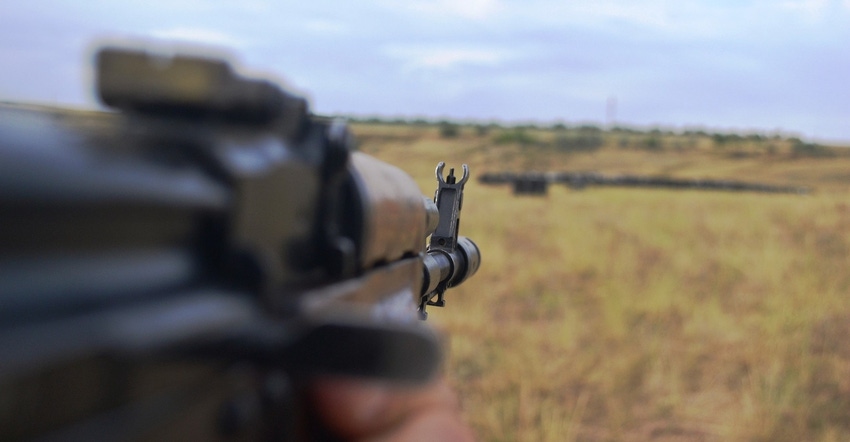Agribusiness ABCDs in the Crosshairs of Ukraine Conflict
Powder & Bulk Solids looks at the presence of the world’s biggest agribusinesses in the conflict zone.

The world’s top agribusinesses are finding themselves in a tenuous position as the Russian invasion of Ukraine begins, as their assets and employees in the country are now squarely in a conflict zone. With troops bearing down on the border, international news organizations are sounding an alarm that food and oil prices are set to rise.
Archer Daniels Midland, Bunge, Cargill, and Louis Dreyfus Co. – the agribusiness ABCDs – have a significant footprint in the country, according to information reviewed by Powder & Bulk Solids. Here is a brief overview of the companies’ presence in Ukraine and their assets that could be impacted by the war.
Archer Daniels Midland
Agribusiness Archer Daniels Midland (ADM) noted in its Q4 2021 earnings call on January 25 that the conflict in Ukraine could cause disruptions in the corn market.
“Ukraine is a big exporter, especially if you think about corn and the ability to supply China’s needs [and] that you have the three main suppliers with the US, and you have Ukraine and you have Brazil. So hopefully Brazil, with this range will have a safrinha [a variety of corn] crop that may be a little bit better than what we expected,” observed ADM chairman, CEO and president Juan Ricardo Luciano. “And corn today is one of the best sources of energy and fat, and they are one of the cheapest ones. So, it’s a very demanded product. So, we’re all paying attention to what happened with that.”
The company operates a trading office in Kiev, an oilseed crush operation in Illichivsk, several siloes, and a grain terminal at the port of Odessa, the company’s website states. Some 630 people are employed by ADM in Ukraine.
Reports said Thursday that Odessa is under attack by Russian forces. Missiles fell on Kiev as the invasion began.
Bunge
The Netherlands-based Bunge currently operates a number of facilities in Ukraine, including a port location in Nikolaev, an oil seed crush plant, oil packaging site, and refinery in Dnipropetrovsk, and an office in Kiev, according to information on its website. Chief Executive Officer Greg Heckman told listeners in a February 9 earnings call that the company will “continue to monitor the situation” in the country.
Russian troops reportedly bombed Dnipropetrovsk on Thursday. An airport in Nikolaev was also targeted.
Reuters reported Thursday that Bunge closed its offices in the country and halted operations at its two oilseed crush plants in Nikolaev and Dnipropetrovsk.
Cargill
Operating in Ukraine for more than two decades, Cargill is the owner of a crush plant in Kakhovka, a feed mill in Lvyv, and two silos, according to an archived version of the company’s website page for its activities in the country. A link to the Ukraine page on Cargill’s website redirected to the main homepage on Thursday. The Jan. 30, 2022 capture details that the agribusiness has over 500 Ukrainian employees.
As a conflict fermented in Ukraine’s eastern areas in 2014, Cargill ceded control of its sunflower crushing plant in Donetsk. Two years later, the company inked a deal with MV Cargo to build a port terminal in Yuzhni.
News accounts said Thursday that Russian soldiers seized a power station in Kakhovka.
Louis Dreyfus Co.
Louis Dreyfus Co. (LDC) describes Ukraine as “a key country” for the company on its website, and notes that it is “one of the country’s top three grains and oilseeds exporters, and one of the largest exporters of beet sugar.”
The company said it has made a number of investments in Ukraine in recent years to beef up its inland origination capacity and processing capabilities. LDC has a port terminal in Odessa operated in partnership with Brooklyn-Kiev and four grains and oilseeds warehouses in the country.
Over 400 workers are currently employed by LDC in Ukraine.
What’s Next
Food manufacturers that rely on materials from Ukraine will have to seek out alternative sources for the interim. It is possible that the Russian military will avoid actions around these facilities in a bid to avoid further aggregating western governments and companies. However, Cargill’s loss of its sunflower crushing plant in Donetsk during fighting in 2014 is a reminder that nothing is guaranteed in areas that have turned into battlefields.
It is also worth noting that that the ABCDs of agribusiness also have significant interests in Russia that could be impacted by western sanctions or if Russia becomes involved in a broader war with other nations.
About the Author(s)
You May Also Like




